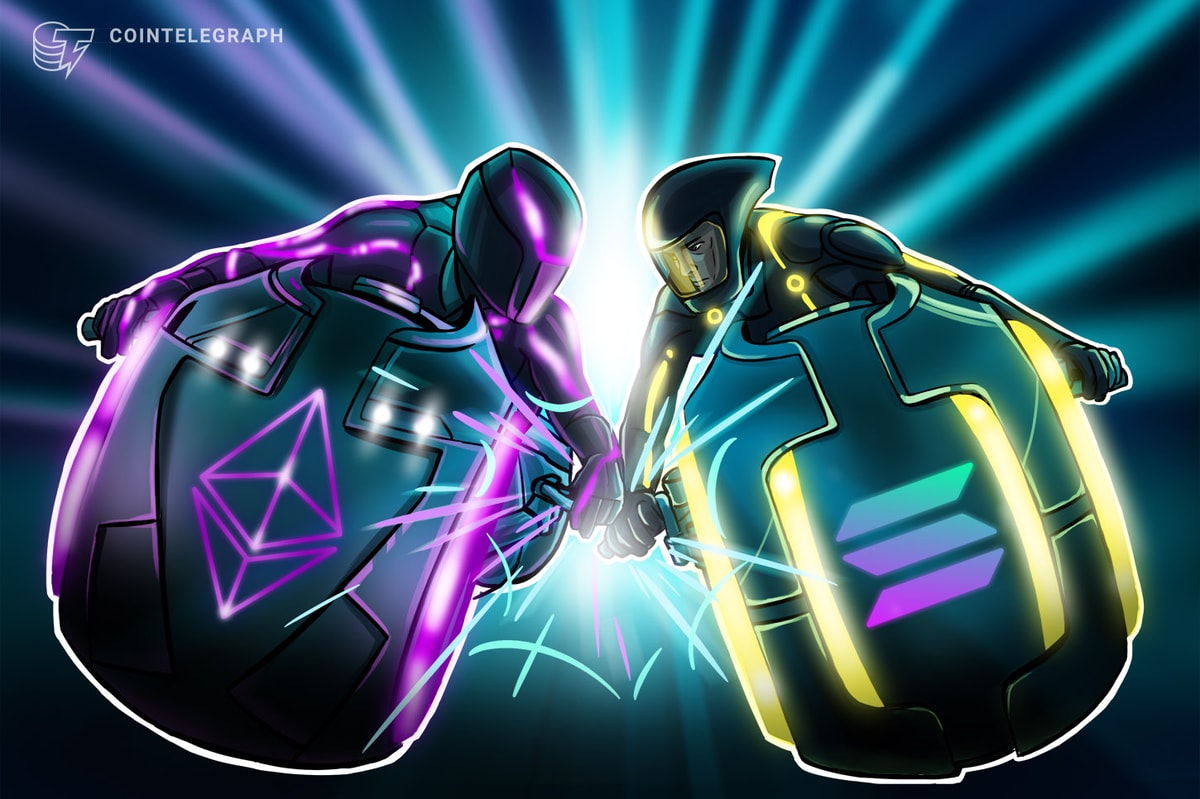CEO & co-founder of Phaver Joonatan Lintala and head of marketing at Cyberconnect Abhi Raheja discussed the innovations of their projects and aspects of SocialFi during the recent Cointelegraph live AMA show. Here are the highlights from the interview:
🎊 The @phaverapp & @CyberConnectHQ AMA was a tremendous success! Thanks to everyone who joined us in exploring the exciting world of Web3 Social Apps. Special thanks to @joonatanlintala & @abhihereandnow for their valuable insights. #Web3Social #AMA [AD] pic.twitter.com/E6CcSmrtFZ
— Cointelegraph (@Cointelegraph) August 22, 2023
About Phaver
Lintala: Phaver is the gateway to Web3 Social. From the very beginning, we've been thinking about building a user experience layer to provide a valuable, easy-to-use service. We already have 250,000 unique users and we want to bring the next billion people to Web3.
Some of SocialFi's innovations have already become game changers, such as user profile ownership and monetization tokens, where revenue streams are based on your reach, content quality and other contributions you make to the network. We're implementing them in Phaver as well. With a properly built Web3 protocol, interoperable profile, you can move between platforms without building a new audience from scratch as it moves with you. You build new experiences with existing profiles and protocols.
In terms of advertising, we don't want to replicate Facebook or Google because they don't allow users to opt out of their intrusive tracking across the web. We want to offer several options: a completely ad-free experience for a small amount of money, or an experience with some ads that aren't relevantly targeted, or an offer to participate in revenue sharing with the ability to opt out. If you decide to buy something after seeing an ad on Phaver, we'll offer you points that you can use within Phaver. The whole point for us is to provide a free and at the same time rewarding user experience.
About Cyberconnect
Raheja: Cyberconnect is the Web3 social protocol. Our goal is to make the Web3 experience very familiar and intuitive like Web2. With our infrastructure, we enable developers to build social applications where users own their identity and monetization and control access to their data.
We’ve been around for two years and now have over 1.2 million user profiles with 16 million transactions on different blockchains. I can say that we're the first team in the Web3 wave to build this kind of social infrastructure. We're also the only multichain social protocol: We’re now available on EVM-compatible chains like Polygon, Optimism, Linea, Base with Arbitrum, and opBNB will be added by the end of September.
And another unique feature of Cyberconnect is that we’re the only social protocol to lead with account abstraction, which is really powerful for onboarding. We’ve deployed over 90% of the existing account abstraction-based wallets in the world. Our current campaign, Cybertrack, allows users to experience account abstraction and get benefits in return.
We’re only using blockchain for platform fees, when there is a creator-subscriber relationship or revenue share between the platform and a user. All other interactions are done at the protocol level. User content is stored with a decentralized solution like IPFS or Arweave, and we have other solutions for storing user bio, avatar, denoting or monetizing content.
We have over 50 apps in the Cyberconnect ecosystem, from all stages of funding and with different use cases — from music streaming to advertising, social wallets and marketplaces. One of them is Link3, a Web3-native social platform, which has 1 million monthly active users, making it the largest app in our ecosystem and, in my opinion, the best place to find new communities for new or experienced crypto users, community managers or community builders.
Another one is Phaver, which gives those who don't have a crypto wallet an opportunity to see what a decentralized social app or a decentralized social feed looks like. That's a really powerful social primitive, and we want to do that at the protocol level. We also have Mocaverse from Animoca Brands, ReadON, Galaxy and other apps that are all built with Cyberconnect.
On account abstraction
Lintala: Account abstraction can make everything work seamlessly. It eliminates the need to manage multiple wallets or have separate experiences.
Raheja: I think account abstraction is the fundamental introduction to the Web3 experience, because its core idea is to migrate existing accounts in blockchain infrastructure like EO wallets to smart contract wallets. It makes interaction with blockchain familiar and intuitive — you'll be able to limit transactions, batch transactions to reduce fees and set privacy settings on your own. Account abstraction removes blockchain from the end-user experience while delivering on promises of decentralization, transparency, composability and interoperability.
On SocialFi
Raheja: If you think about social data on the internet in a decentralized way, there are some interesting things. Instead of locking users into their apps, it creates market dynamics, makes developers and projects compete on a different level. It allows users to leave the app, burdening only developers to provide better services, and gives bargaining power back to users and content creators.
Lintala: I hope people will build SocialFi with the existing infrastructure in mind, rather than trying to reinvent the wheel. As more social protocols come out, people will build more applications and do more innovation, but at the same time, we have more different standards in competition. My hope is that we'll get to the point where there's a standardization of interoperability between different projects coming to market, so that we have one to two social graphs and a lot of products for users to freely choose the experience and have the same network across different applications.
The problem with existing SocialFi applications is that they are quite complicated for mainstream users. Some people are willing to go through that high-friction process for some money, but I doubt we have more than that. We need to remove that friction as much as possible and create such interesting, killer features that people will really get excited and join.
Raheja: I don't think blockchain is going to transform the world, because people aren't going to change their social behavior or the way they communicate with their friends one way or another. We're just giving them ownership of social data and control over their network, with the ability to travel seamlessly across the internet. But in the end, the core feeling of connecting, of wanting to belong, will remain the same for users and will matter the most to them. This perspective helped us establish an ethos for our protocol. Blockchain is only useful in a social decentralized environment when there's an exchange of value, a financial relationship between users and the platform.
Disclaimer. Cointelegraph does not endorse any content or product on this page. While we aim at providing you with all important information that we could obtain in this sponsored article, readers should do their own research before taking any actions related to the company and carry full responsibility for their decisions, nor can this article be considered as investment advice.












